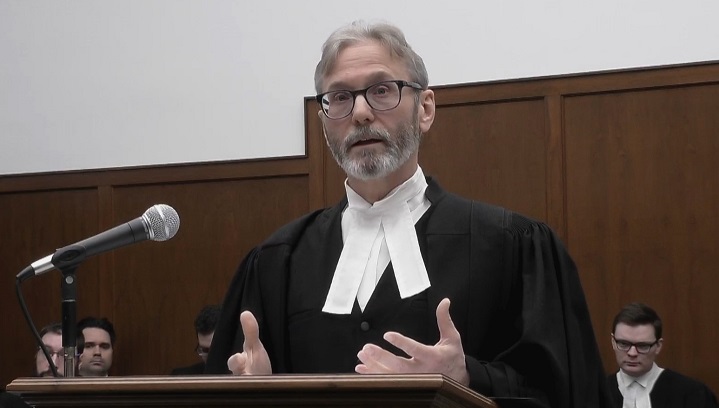FULL COVERAGE: Saskatchewan carbon tax case heads to court — province argues it’s unconstitutional

Saskatchewan’s reference case on the federal government’s price on pollution began Wednesday, with lawyers representing the government of Saskatchewan and their interveners making their cases against the carbon tax.
Representing the Attorney General of Saskatchewan, Mitch McAdam argued the federal backstop on carbon pricing goes against Canada’s Constitution.
McAdam opened his statements saying this case is not about arguing whether climate change is real, all parties agree it is real and a threat, or what is the best policy for addressing that issue. This is about determining whether the federal government has the power to impose tax regimes in some jurisdictions and not others.
He called the idea of applying separate federal tax legislation “unprecedented in Canadian history”. McAdam went on to say this is a case where the federal government is saying provincial legislation is not good enough and stepping in to apply their own standards.
In his arguments, McAdam said that both the provinces and federal government have degrees of authority over the environment and pollution. It will be up to the courts to decide who has the stronger claim.
McAdam also raised the inability of one level of government to tax another. He used the example of SaskPower and SaskEnergy being provincially owned Crown corporations.
When looking at the breakdown of power in federalism, McAdam highlighted two main points: the provinces are not subordinates of the federal government, and provinces have autonomy on areas where they have jurisdiction.
While on this note, McAdam said the federal carbon price, currently set at $20 per tonne and rising to $50 per tonne in 2022, goes against the nature of federalism. This is because it is being applied by the federal government in some provinces and not others. He added that logic would dictate if different laws are needed in different provinces, then it should be within the realm of provincial jurisdiction.
Other parties making their case today include the provinces of New Brunswick and Ontario, SaskPower/SaskEnergy, the Canadian Taxpayers Federation, United Conservative Association, Agricultural Producers Association of Saskatchewan and the International Emissions Trading Association.
The federal government, British Columbia, and eight other intervenors will present Thursday.




Comments